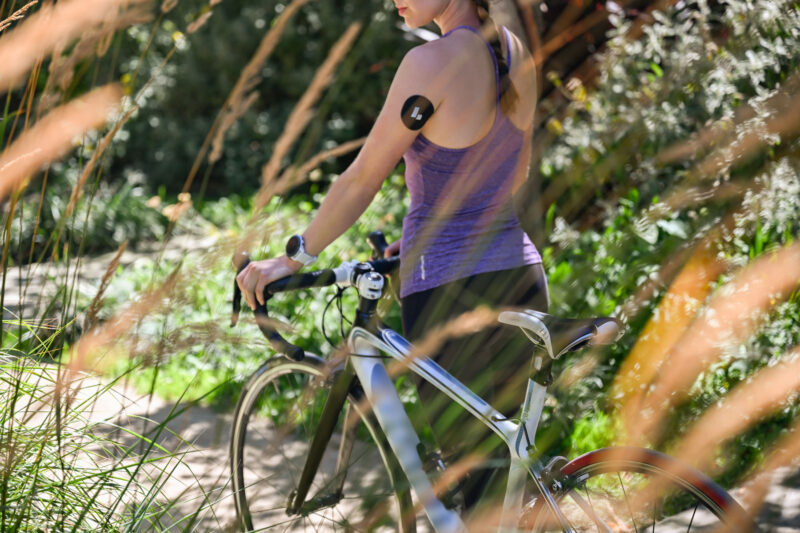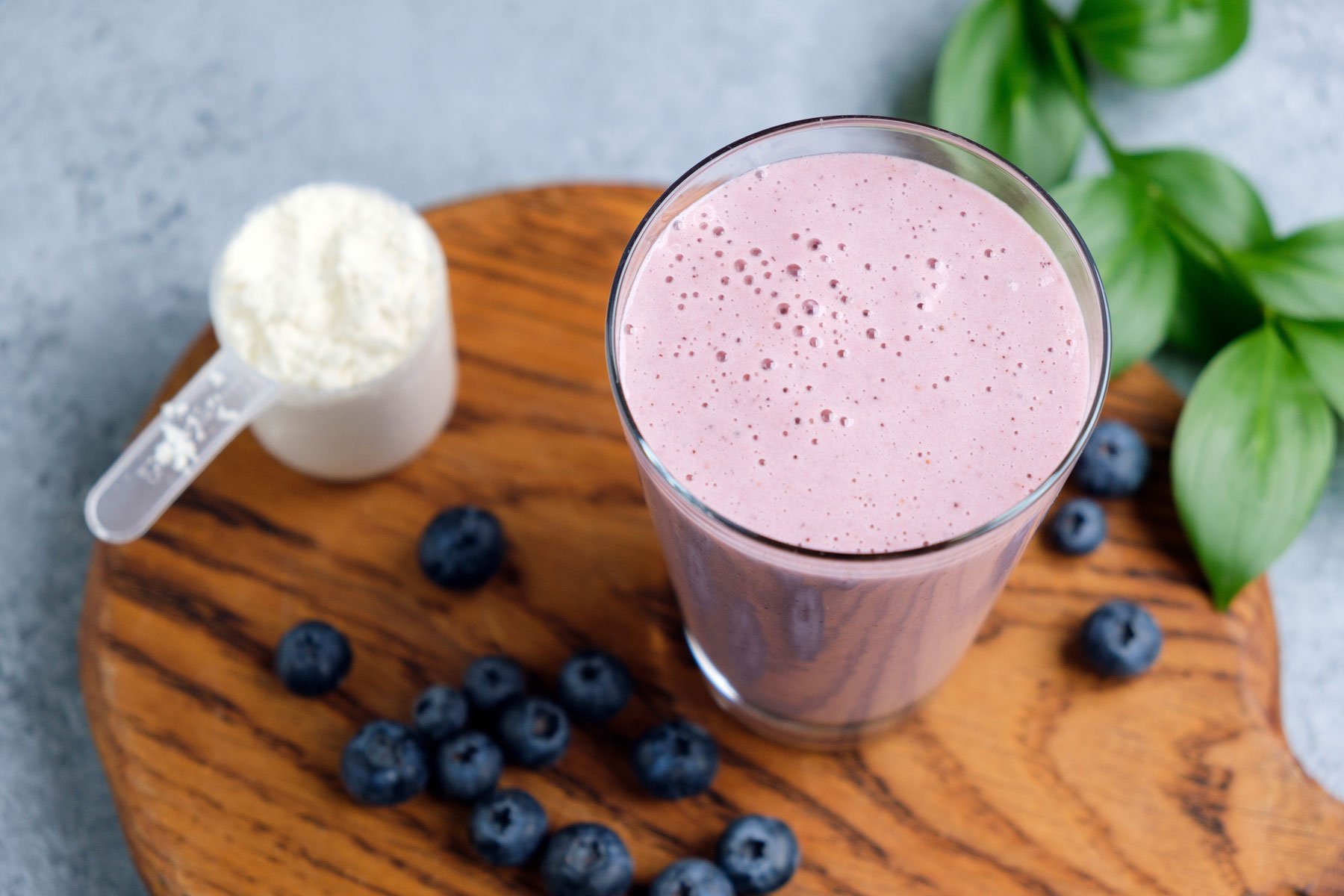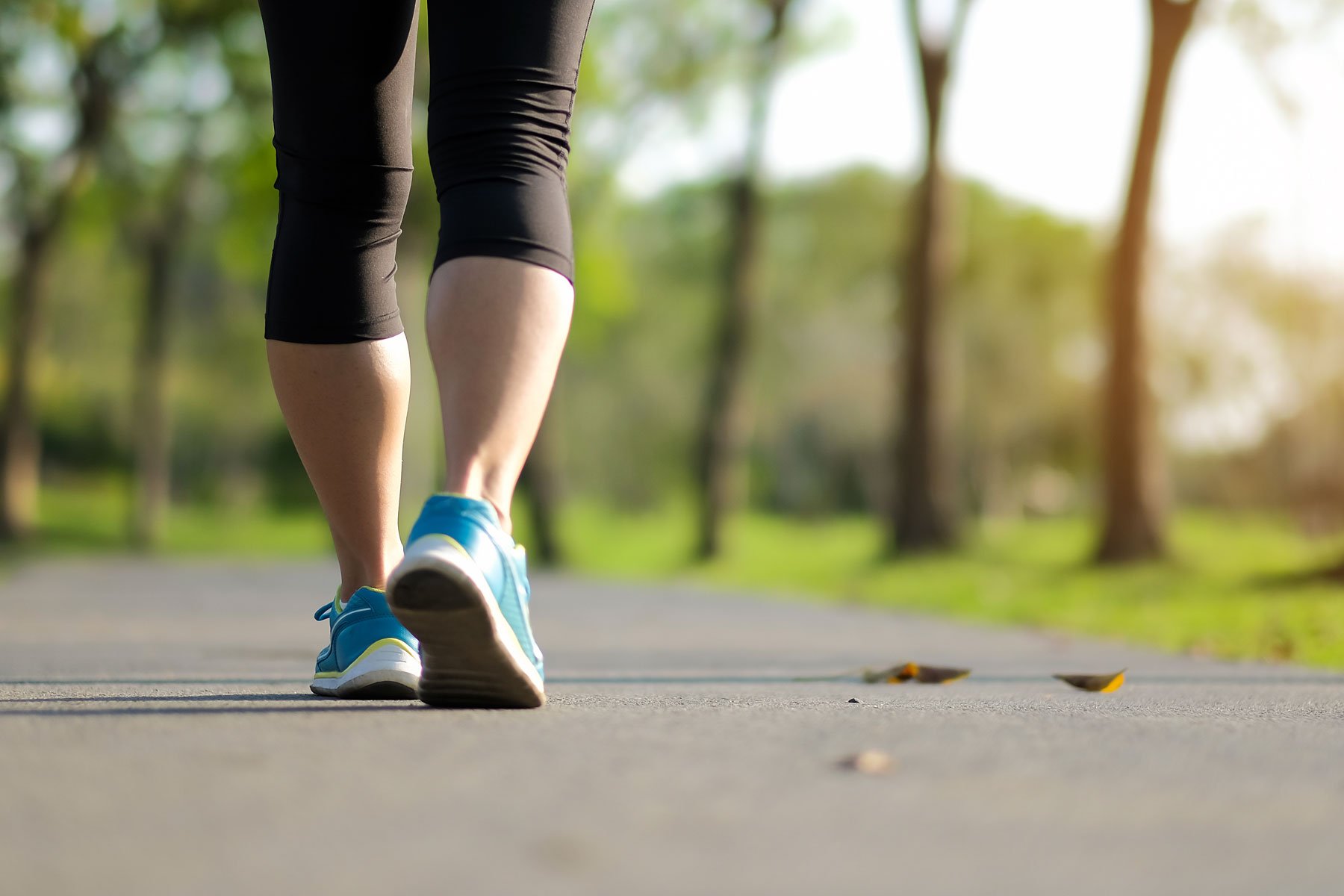Who: Michaela Kilander, 41
Where: Baltimore, MD
Time with Levels: 1 year
Most Useful Takeaway: On days she didn’t get sufficient sleep, she had a higher glucose spike in response to stressful events, which is one reason she’s currently working on improving her sleep habits.
What was your health like before using Levels?
I’ve always been an active person, which has helped keep my body in pretty good shape. However, I have struggled for a long time with eating disorders.
My recovery has been done mostly on my own. Before I moved to the United States eight years ago, I lived in Sweden, where I did some therapy. However, my turning point came about three years ago. There was a shift in my mindset and habits that really helped me start my journey towards healing. A lot of this was getting more into mindfulness practice, particularly breathwork.
What made you want to put a CGM on your arm?
I heard about Levels on various podcasts. During the pandemic, I got more into podcasts, including listening to The Drive with Peter Attia, Huberman Lab, FoundMyFitness with Rhonda Patrick, and Lifespan with Dr. David Sinclair. These podcasts all were talking about using CGMs. I became so curious to try it out myself.
At the time, I had a little bit of knowledge surrounding metabolic health and trying to keep blood sugar levels at a constant level, but it really came into focus with these podcasts. It was obvious how detrimental it can be to have metabolic syndrome.
What are some of the foods that keep your blood sugar stable? What caused glucose spikes?
I was surprised that eating milk products, including yogurt, caused my blood glucose to crash. I don’t know if my body was releasing a lot of insulin in response to these foods, but either way, I felt that they were stressing my body.
When I first wore the CGM, I did a 72-hour water fast, which was something I learned about from the aforementioned podcasts. This experience was interesting because I could really see that my glucose levels were very stable, if not a bit low (in the 70s). At the time, I wasn’t sure if I should do a fast like that because of my past problems with eating disorders. You have to be careful to not do something too extreme, as it can trigger your eating disorder. However, the water fast felt really good when I did it. Now, I stick to intermittent fasting.
As I was recovering, I was also starting to use a CGM to help me work on figuring out how to transition and sustain a healthier relationship with food. In the past, I was careful to avoid carbohydrates because I didn’t think they were doing anything good for me. I was skewing keto. But I think it’s actually been beneficial to introduce more carbohydrates into my diet. For example, I tried the hack of cooking and cooling your potatoes to decrease your blood sugar response and found that worked nicely for me. I found that dried dates spiked me, which is unfortunate, because they are so good.
What non-food factors did you find influenced your blood sugar levels?
I put an emphasis on trying to get good sleep and stick to a sleep schedule. In the past, I struggled with that. I noticed that when I got poor sleep, my blood sugar levels, on average, were higher in response to food. My glucose spikes would also be higher in stressful situations compared to what they would be after a more normal night of sleep. I like to bike to work, and if I didn’t sleep well, I’d even see more of a spike after biking.
As a result, I’ve been trying to get to bed earlier and wind down before bed. I still like to work to wrap up my day, but I do think I should rethink that habit. My day-to-day eating schedule follows a 16/8 fasting, where I fast for 16 hours a day and eat during the other eight hours. This pattern tends to lead to a late dinner. Eating later in the evening is a schedule I’ve had my whole life. My father is from the Mediterranean region, and they always had a late dinner, so it’s something I grew up with. I’m also curious to see if I can try to shift that schedule and if moving my eating to earlier in the day would lead to better blood glucose management.
Looking forward, what else do you hope to learn from wearing the CGM?
If I can motivate myself to rearrange my eating habits and sleep schedule, it would be interesting to see if I could make my metabolic health even better. I know in my family there is some predisposition to late-onset Alzheimers disease. I know that keeping my metabolic health is really crucial for avoiding neurodegenerative disorders, and I want to maintain my brain and body health for as long as I can.









